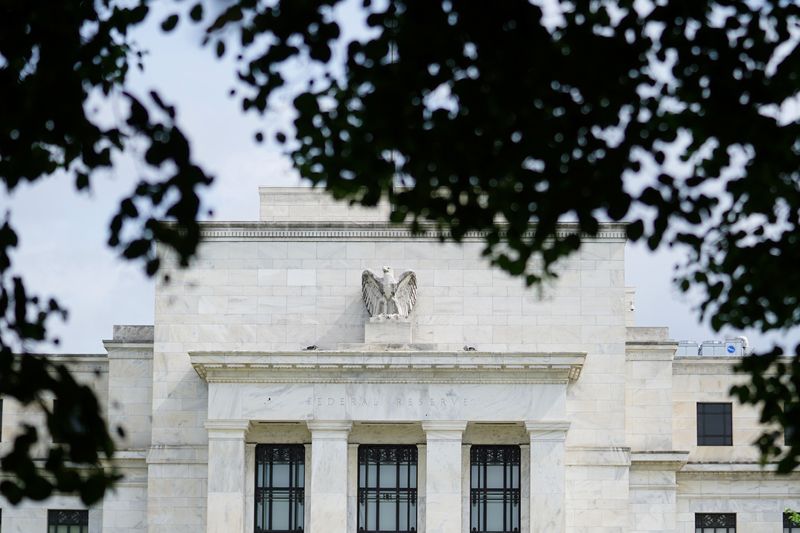By Dan Burns
(Reuters) - Deposits at U.S. commercial banks rose near the end of March for the first time in about a month, showing signs of stabilizing after the two largest bank failures since the financial crisis rocked the banking system and rattled depositors.
Federal Reserve data released on Friday showed deposits at all commercial banks rose to $17.35 trillion in the week ended March 29, on a nonseasonally adjusted basis, from a downwardly revised $17.31 trillion a week earlier.
It was the first increase since the start of March and marked an end, for the moment, to a record flight of deposits triggered by the collapses of Silicon Valley Bank and Signature Bank (OTC:SBNY) toward the middle of last month. The second and third largest bank failures in U.S. history forced federal regulators to guarantee all deposits at both institutions and prompted the Fed to take emergency actions to restore confidence in the banking system.
Deposits rose at both the largest 25 banks by assets and at small and mid-sized banks as well. Small banks had been particularly hard hit by deposit outflows after the back-to-back failures, with some depositors shifting cash to larger institutions on concern that any funds in excess of the $250,000 per depositor federal insurance limit might be at risk.
After more than a year of sharp interest rate increases by the Fed designed to slow the economy in order to cool inflation, last month's banking turmoil has exacerbated worries that the central bank's aggressive tightening may trigger a recession.
Economists and policymakers are watching the Fed's weekly snapshot of the financial condition of the country's banks closely for signs deposit flight has run its course. They are watching just as closely for indications that lenders might start to rein in credit as a result, an action that could accelerate the onset of a economic slowdown or make it worse.
Indeed, overall credit from U.S. banks did decline by a record of more than $120 billion in the latest week, on a nonseasonally adjusted basis, but that was largely the result of banks divesting $87 billion in securities to nonbanks, such as hedgefunds. The Fed said banks had offloaded that amount of assets in each of the two latest weeks, most of it coming in the form of Treasuries and mortgage-backed securities.
The moves coincided with recent sales of various assets of the two failed banks under the direction of the Federal Deposit Insurance Corp, but the Fed did not specify if that was the impetus for the divestitures.
At the same time, however, lending to businesses and consumers by banks held steady with $12.07 trillion in loans outstanding as the month neared its end, up fractionally from a week earlier. While loans for both commercial and residential real estate, and for commercial and industrial loans, a benchmark for business credit, each fell marginally, the declines were offset by a pickup in consumer loans led by credit card balances.
